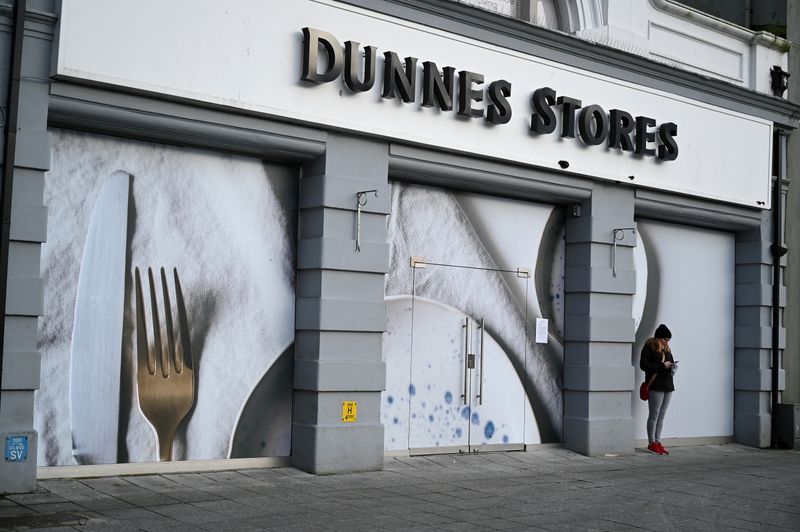By Padraic Halpin
DUBLIN (Reuters) -About 4,000 additional positive tests for COVID-19 in the last two to three days have yet to be formally confirmed in Ireland, meaning the situation is worse than recent record daily figures suggest, a senior health official said on Thursday.
Ireland reported more than 1,500 cases for the third day in a row on Thursday, a day after the government announced the shutdown of all non-essential retail for at least four weeks and an extension of school holidays to curb a rapid surge.
Ireland has gone from having the lowest infection rate in the European Union just two weeks ago to having the fastest rate of deterioration after shops and large parts of the hospitality sector were allowed to reopen for most of December.
“The bottom line here is we must suppress transmission, there is no alternative. Failure to suppress transmission leaves us in far too stark a scenario to be acceptable,” Philip Nolan, the head of Ireland’s COVID-19 modelling group, told a news conference.
Nolan projected that the total number of people in hospital with COVID-19 will likely double to between 700 and 1,000 people by early January, potentially surpassing the first wave peak. That could reach an “intolerable” 1,500 to 2,000 patients if the virus is not suppressed, he added.
To relieve extreme pressure on the testing system, asymptomatic close contacts of confirmed cases will no longer be advised to get tested and will instead be asked to restrict their movements for 14 days.
“Many people in vulnerable groups didn’t just hope, they probably prayed for the advent of vaccines,” Chief Medical Officer Tony Holohan said after Ireland began its vaccination programme this week.
“As a society we owe it to them to not let it go to a point that they are no longer around to benefit from being vaccinated and protected.”
(Reporting by Padraic Halpin; Editing by Andrew Heavens and Nick Macfie)
















